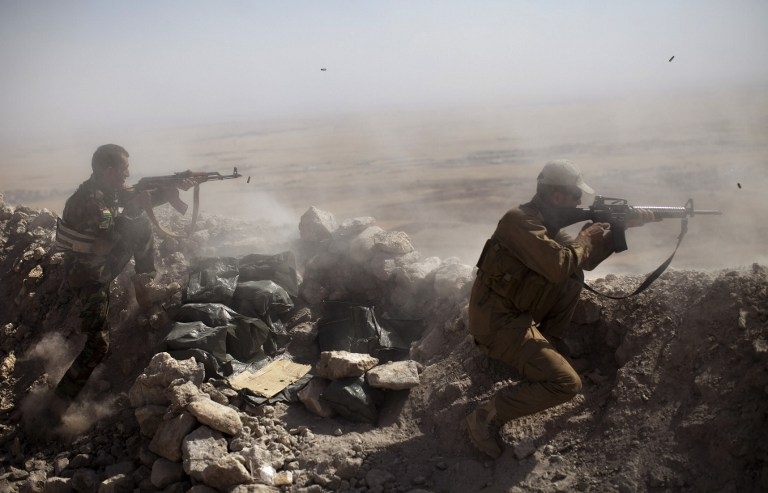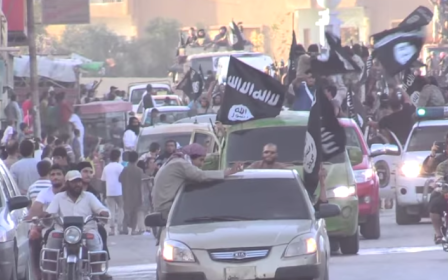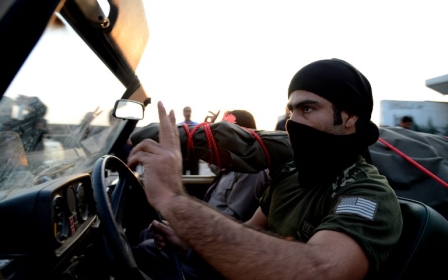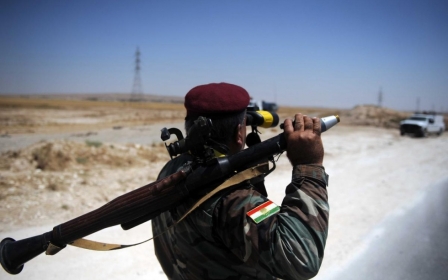US-led airstrikes kill four IS leaders in Mosul

Four leaders of the Islamic State militant group, including the head of Mosul Radwan Talib, were killed in an US-led airstrike targeting their vehicle in al-Mashayikh market of Mosul, reported Sky News Thursday morning.
Mosul has been under IS control since 10 June, after which the group overran the surrounding Nineveh province and swathes of other territory.
This comes a day after Iraqi security forces broke a months-long siege of IS militants on Baiji and its oil refinery, and joined up with troops who had been holding off IS onslaughts for months.
The US Central Command said that the US and allied countries have conducted 24 airstrikes against IS militants in Iraq since Monday, a majority near the city of Kirkuk.
In Kirkuk, Kurdish forces backed by coalition airstrikes launched attacks to retake territory near the town of Kharbaroot, located 35 kilometers west of the city of Kirkuk.
Meanwhile, the Iraqi army and peshmerga forces have also been waging military operations throughout other parts of the country to regain control.
The Iraqi forces have pushed toward Tikrit and Samarra, south of Baiji and are carrying out joint military operations with the peshmerga in Diyala province east of the country to regain control of Saadiya, Jalula, and Yawer.
"Over the next three days, we will work on reinforcing our capacity because we are planning to clear areas on three sides of Tikrit," an army brigadier general said on Monday.
In the western side of the country, ten Islamic State militants and three Iraqi security forces were killed on Sunday during renewed clashes between the two sides in downtown Ramadi of the Anbar province in the West of Iraq, according to Iraqi security sources.
As a means to reinforcing the efforts of the coalition, French minister of defence Jean-Yves Adrian announced on Wednesday plans to send six additional fighter jets to support the offensive against Islamic State positions, reported AP.
Middle East Eye propose une couverture et une analyse indépendantes et incomparables du Moyen-Orient, de l’Afrique du Nord et d’autres régions du monde. Pour en savoir plus sur la reprise de ce contenu et les frais qui s’appliquent, veuillez remplir ce formulaire [en anglais]. Pour en savoir plus sur MEE, cliquez ici [en anglais].




